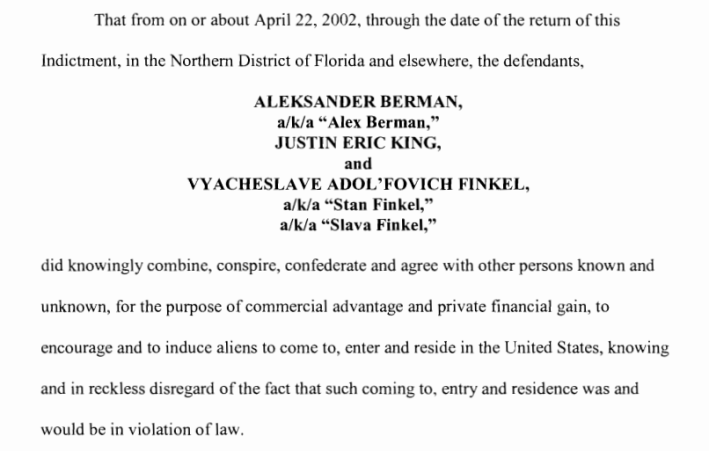The shed could be anywhere in America. The man staring into the camera could be any fortyish white guy in the South—complete with a battered baseball hat, rugged beard, and twangy speech peppered with the word “y’all.” He comes across like the type of guy who will help a stranger change a tire, is more likely to shed a tear at a football game than a funeral, and exclusively drinks either sweet tea or cheap domestic beer.
The man isn’t just a random dude who probably hasn’t been to the doctor in a decade. He’s one of the most influential political YouTubers in the country. Beau of the Fifth Column has nearly 900,000 subscribers; his videos have racked up well over half a billion views. Fans tune in for short daily videos in which he waxes about politics, society, and world affairs with a calm, thoughtful delivery that is exceedingly rare among shout-happy political influencers. Beau describes himself as a “southern journalist" done with a "lack of common sense.” This and his seemingly authentic everyman appeal has attracted a huge and dedicated audience; some of his die-hard fans refer to themselves as “Beau Peeps,” a play on the “Little Bo-Peep” nursery rhyme.
Like comedian Trae Crowder, who popularized the term, Beau’s brand is Liberal Redneck™. It’s a brand built to puncture the stereotype that all rural white southerners are conservative. And, like Beau says, reach people on the other side of the political divide.
Beau articulates the purpose and appeal of the Liberal Redneck™ brand thusly: “Generally speaking, people who look and sound the way that I do don’t hold my views,” he told Rural Assembly in 2022. “So as far as de-radicalization, there are a whole lot of people who will click on a video, something titled, Let’s Talk About Armed Black Men, something like that, expecting to hear one thing from somebody who looks like me, and they get something else.”
Despite how successful and influential Beau of the Fifth Column is, he rarely speaks to the media, and he doesn’t appear to embrace any of the trappings of the fame. He ignored multiple requests to be interviewed for this article.
His fans might say that he’s too humble to buy into his own hype. Critics of Beau of the Fifth Column believe it’s because he’s a phony with a checkered past. They point to the facts that Beau isn’t his real name—it’s Justin King—and that old videos show him speaking without any detectable accent. He’s hardly the only person on the internet to use a nom de plume and has said that he used to hide his accent so people wouldn’t assume he was ignorant, as many do when they hear a southern accent. “People don’t really think you’re intelligent if you sound like an extra from Deliverance,” he said a few years ago.
To King’s detractors, his criminal history and statements he’s made about it aren’t quite so easy to explain away.
In 2007, he was convicted of alien smuggling, visa fraud, and conspiracy to commit visa fraud in a case involving hundreds of people, the vast majority of whom were purportedly young women from Eastern Europe who prosecutors said were lured to America to work as hotel housekeepers in a moneymaking scheme that profited King and his co-conspirators every step of the way. His three Russian co-conspirators testified against him at trial and were also convicted.
In the years since he’s become internet famous, King has been accused of downplaying or even misrepresenting his criminal history, which he denies. But he also doesn’t fully explain how a man in his mid-twenties from a rural part of the Florida panhandle got caught up in a visa fraud and alien smuggling scheme with three middle-aged Russians.
It’s not likely an explanation is coming. Last year, he said on his channel that he’d decided not to talk about his past anymore because it could undermine others who were trying to turn their lives around.
This did not silence the critics. “Beau has nobly decided not to talk about his past, for the good of the people,” a redditor wrote sarcastically.
The fake name, potentially fake accent, and felony conviction has led some to wonder whether Beau and Justin King are the same person—or if he’s playing a character for clout.
From jail to Justin King News
Being just shy of 1 million subscribers places Beau of the Fifth Column among the most influential political YouTubers, a remarkable achievement for “a dude in a shed,” as he’s described himself.
The Young Turks (6 million subscribers) broadcast two or three hours of content Monday through Friday in a studio complete with professional lighting, graphics, high-quality cameras, and guests. Ben Shapiro (7 million subscribers) has the backing of the Daily Wire and puts out similarly slickly produced content that looks more like cable news than public access television in the boondocks.
King films short videos under a bare bulb in a storage shed in a T-shirt and a Curious George baseball hat. (Four years ago, he added a second channel for longer-form content that has 145,000 subscribers.)
In the nine years since he launched Beau of the Fifth Column, King has become an internet sensation while somehow maintaining a relatively low profile outside of his fan base.
He was actually on his way to fame years before he created Beau. From 2013 to 2019, overlapping with the first few years that he was growing the Beau brand, King was active online under the moniker Justin King News. This persona was of an anarchistic journalist who reported heavily on the activist collective Anonymous early in his career.
King reinvented himself as a journalist shortly after he completed the terms of his sentence.
Court records show that King was released from probation on Jan. 31, 2013. Seven months later, he launched a Facebook page and Twitter account for Justin King News.
He appears to have been an immediate success. Within a year, there were two Facebook pages for his female fans: Justin King Newsgirls and Justin King Fangirls. Many members would post selfies with their location and “[heart] Justin King” or “love Justin King” written on their bodies, some in very suggestive poses and areas.
Back then, King’s aesthetic bore little resemblance to the laid-back everyman image he’s cultivated as Beau. He often wore a keffiyeh, occasionally donned a suit and tie, and espoused views far more radical than the centrist liberalism that characterizes Beau of the Fifth Column. On what appears to be his personal Facebook page, he promoted buying a T-shirt that referred to Molotovs as “freedom cocktails.” The header photo of the page is a photo of a piece of clothing with a patch that says in part, “I’m just here for the violence.”
King today advocates non-violence, a shift for a man who once reportedly wrote, “Cop[s] that behave like violent thugs, die like violent thugs."
Beau is born
The seeds of what would become Beau of the Fifth Column were planted before he was released from prison. Federal records show that he was released on Nov. 19, 2010; the Beau of the Fifth Column YouTube channel was created on Oct. 14, 2010. It appears to have remained dormant for some time.
In 2015, he announced the launch of Beau of the Fifth Column. The “fifth column” refers to a group who secretly works to undermine a cause or country from within.
King has said that the idea for “Beau” was born during a night of drinking with some colleagues. As the drinks flowed, he said that his “real” accent slipped out. His colleagues were floored. “Oh my God, you’re a redneck,” he’s claimed they said, and encouraged him to embrace this identity. So he did.
By then, Justin King News had amassed tens of thousands of followers across multiple platforms. Archives show that the since-deleted Justin King News account on what was then Twitter had 47,000 followers the year he created Beau; the Facebook page had nearly 30,000 likes as of 2019.
“Enforcement was carried out by verbal abuse, threats of violence, and threats of fines or non-payment of wages,” the authors of a report about human trafficking wrote of the case against King and his co-conspirators.
That success is nothing compared to what he’s achieved as Beau.
For a time, he was active both as Justin King News and Beau of the Fifth Column and seemingly acknowledged that the latter was a role he was playing. In a 2019 Facebook post, he referred to “Beau’s inbox,” which he insinuated was filled with messages from women professing their attraction to him.
He appears to have abandoned Justin King News around the time Beau of the Fifth Column took off. The last post on the Justin King News Facebook page is from November 2020. That year, the Beau YouTube channel reached 400,000 subscribers.
It's only gone up from there. Last year, he hit 800,000 and is currently closing in on 900,000.
At first glance, one might assume that his unsophisticated presentation and seemingly off-the-cuff rants about various subjects are the hallmarks of an amateur YouTuber. Watch even a handful of King’s videos and you’ll realize that he uses the same formula in each; location, aesthetic, wardrobe, delivery—it’s the same in every video. He always begins saying some version of, “Well, howdy there internet people. It's Beau again,” and ends with, “It’s just a thought. Y’all have a good day.”
Even the names of the videos are formulaic. Like how the name of every episode of Friends began with the phrase “the one,” each of his videos are called, “Let’s talk about,” followed by the subject at hand.
It’s a lucrative recipe. YouTuber Yannis Stanopoulos, known online as BadEmpanada, estimates that King is making $25,000/month from the platform. That doesn’t include income from the T-shirts and gear he sells, plus however much King’s nearly 6,5000 Patreons are kicking in.
Stanopoulos told me that he believes it’s a lot of money for minimal effort.
“I'm a YouTuber, I know how much money we make, and if you can put out like four or five unscripted, unresearched videos per day like he does and still get views, you are making thousands of dollars minimum for maybe a couple of hours at work,” said Stanopoulos, who has criticized King in the past. “And that's not even getting into income from other sources, like Patreon."
A YouTuber with a past
As Beau, King has cultivated an image of a wholesome family man living a simple life in the middle of nowhere, Florida.
His past has occasionally disrupted that image in recent years.
In 2021, the Los Angeles Times revealed that a program designed to redirect people searching for terms associated with far-right extremism, like “join Oath Keepers” (referring to the militia whose leaders are imprisoned over their roles in the Capitol riot) or “bomb instructions,” to content meant to diffuse or deradicalize them was directing people to an “anarchist”: King. The Times story described his conviction, history of making statements that could be taken as violent, and prior work for publications the Rutgers University Network Contagion Research Institute reportedly classifies as “disinformation,” including one it said promotes “anti-Jewish conspiracy theories and which also posts copy from Russia Today and Sputnik,” which are owned by Russia.
King told the Times that his work only appeared on that site because it was licensed so that essentially anyone could repost it without permission. But his personal Facebook page includes a link to his author profile on the site and its editor once cited an article he reportedly wrote in which he defended the outlet against allegations that it was on Syrian dictator Bashar al-Assad’s payroll, which it denied.
A week after the Times piece came out, YouTuber Michael Beyer, aka Mike from PA, posted a video excoriating King about his conviction and how he’s framed it over the years. Beyer accused King of lying and inadequately explaining his role in the conspiracy, which he argued undermines leftists’ agenda.
“We cannot have someone advanced on the left, promoted by Google, promoted by the algorithm, promoted by NowThis, who is somebody who has exploited people like this,” Beyer said.
“Imagine the damage that will be done to the movement if people find out that one of the most prominent voices on the left was a human trafficker who exploited hundreds of women for his own profit.” (King was not charged with or convicted of human trafficking.)
Many in the comments attacked Beyer for bringing up King’s past. One baselessly likened him to “literal Nazis on 4chan” who’d purportedly dug up the same dirt. Several accused Beyer of publishing a “hit piece” or suggested he wasn’t telling the truth.
“Can someone please SHOW me the evidence of any of these supposed crimes,” wrote one skeptic.
Beyer did not respond to an emailed request for comment. YouTuber Stanopoulos described similar reactions to videos he posted about King’s crimes. He sent the Daily Dot screenshots of comments from some of King’s angry fans.
“Lots of his viewers genuinely believe that ‘Beau’ is actually a real person, rather than Justin putting on an accent that isn't his and playing the character of a white guy from the deep South for his YouTube persona,” Stanopoulos said. “And he really does absolutely nothing to dissuade this at all.”
The same day Beyer posted his video, King posted one in which he seemed to blame those behind the Los Angeles Times article for intentionally sabotaging either him or efforts to deradicalize people.
“If this push was aimed at me and getting me out of this program: Congratulations, you won. My content is no longer being used for this,” he said.
Via direct message, redditor Alf_PAWG, who has criticized him publicly, recently described King’s audience as ardent fans who simply cannot believe their favorite e-celeb has skeletons in his closet. To Alf_PAWG, they see King as simply “too important, too irreplaceable, to fail.”
“If you bring up his reputation, they'll claim to have never heard of it, only to mysteriously become experts once you've described his crimes,” Alf_PAWG said.
Based on comments on the few videos in which he has brought up his conviction, much of King’s audience clearly believes he is reformed. “I am a criminal defense attorney and I am proud of what you have done,” one commented on his video explaining why he doesn’t talk about his crimes anymore. “I didn't know your history before, but now I admire you even more!”
Stanopoulos told the Daily Dot that some of King’s fans who commented on his posts took their defense of him a step further.
“His audience seem to be very diehard mainstream Democrat voters who believe that Justin's criminal past is an invention of Russian agents who want to discredit him for his support of Joe Biden's presidential campaign,” Stanopoulos said.
He said that some also assume the only reason people would bring up King’s criminal history is because they support former President Donald Trump.
“It's either that or they just kind of get outraged that someone would dare cite facts that paint him negatively, because they apparently think they know he's squeaky clean just because they like his YouTube videos,” he said.
King has arguably fed into this by being cagey about his past.
In 2016, he told a podcast that he worked as a military contractor for eight years doing “nongovernmental stuff.” Doing this work, which he described as altruistic, he said, got him on the wrong side of the federal government and led to his arrest.
“I worked for a company that did refugee recovery, we got refugees out of bad countries, whether it be Eastern Europe, Central Asia, wherever,” he said. “We started working in Uzbekistan, and this much is my personal theory…. Uzbekistan was a U.S. ally at the time, they were also really, really, really evil to Jewish people.”
He said that the State Department asked them to stop saving refugees and they responded with a figurative “middle finger.”
“They showed us,” he continued, chuckling, “A few weeks later, we all had our doors kicked in and all got arrested.”
Court records do not align with this retelling. Per those records and a subsequent report on human trafficking in Florida, King and his co-conspirators were convicted of luring young, Eastern European women to the U.S. on temporary visas to work as hotel housekeepers, for which they were paid substandard wages and extorted throughout their time in America. The indictment states, “The purpose of the conspiracy was for the defendants and others to unjustly enrich themselves by preparing and submitting fraudulent ETA-750 applications, fraudulent I-129 petitions, and related applications to the United States Government.”
The scheme purportedly benefited King and the others handsomely. The government sought forfeiture of $3.2 million from them; in the end, they were ordered to pay $1 million, records show.
"He has a rather disgusting past," said an admin of the Beau of the Fifth Column subreddit.
Prosecutors said the operation began as early as 1999 and that King joined it in 2005. Some may wonder how a young American could become entangled with three middle-aged Russians in an alien smuggling ring; King doesn’t appear to have ever explained how he became involved.
His involvement was far from tangential, per prosecutors. The Justice Department said that after he became involved, King “quickly took over the role of negotiating new contracts with hotel owners, communicating with state and federal agencies and broadening the conspiracy.” He worked on fraudulent visas for 72 immigrants that were granted, a press release about his conviction states, and submitted an additional 1,600 that were not granted.
One witness testified that King was her main point of contact throughout her time in the U.S., bringing her documents to sign, giving her paychecks, and personally arranging for her to work at another hotel after she fell ill. She said that the group also enlisted her help recruiting others to come work for them.
“I been asked that we need people. And I tried to be loyal to the company and tried to contact them and tell them we need the people at this moment and if you have available, and they were starting to work there,” she testified.
In her testimony, the woman, who said she was from Bulgaria, did not mention anything about being Jewish or a refugee.
The case was so egregious that, years later, the Florida Strategic Plan on Human Trafficking dedicated an entire section to it.
The section, titled “Destin King labor trafficking case,” went into great detail about the case. It said that the young female victims, many students between 19 and 23 years old, were recruited for nonexistent jobs then worked as housekeepers for substandard wages. The indictment states that the conspirators submitted fraudulent applications that contained forged signatures, false assertions that they represented the hotels, and “false statements about the jobs listed in the applications.”

The temporary workers purportedly knew they would be housekeepers; however, the authors said that the applications did not always match the hotels they ultimately ended up working at. They were charged between $1,500 and $2,500 for visa applications (federal law requires the employer to pay these fees), the report said. “In addition, the young workers were charged to stay 15 to 20 persons per condominium throughout a variety of locations throughout the Panhandle,” the authors noted. The charging document notes that one of King’s co-conspirators required several of the immigrants to sign housing and employment contracts and threatened to have them deported if they declined to sign the latter or complained about the housing situation, which was described as “over-crowded conditions in various locations provided by [the company].”.
Prosecutors say King harbored 39 immigrants.
“Enforcement was carried out by verbal abuse, threats of violence, and threats of fines or non-payment of wages,” the report’s authors wrote.
The report described King as the “front man” for the operation. The government alleged that King signed a sworn statement identifying himself as the general manager of the company. In that statement, King reportedly said the company provided the workers with housing and transportation and that his responsibilities included maintaining office records, ensuring petitions were filed, and “manag[ing] the foreign service employees in day to day operations.”
Per the human trafficking report, when the feds got suspicious and stopped approving visa applications submitted through their prior business entity, the four formed a new one called Woland—the name of a fictional Russian character based on the devil—and continued the operation.
On the few occasions that he has talked about the case, King has been very clear that he is not a convicted human trafficker, which is true. However, the authors of the report seemed to think it odd that the four weren’t charged with that offense and wrote that prosecutors later said, “…[T]he criminal behavior had in fact included all the elements that would have established forced labor.”
The authors described their operation as part of a web of similar entities throughout the country. “There appears to be a high degree of interconnectivity between the companies, strong indicators of organized crime, and similar patterns of exploitation practiced by the suspect companies,” they wrote.
The report made no mention of the young female victims being Jewish refugees from Uzbekistan or any other country, as King claimed in 2016.
King once said that getting arrested over his purported work as a military contractor inspired his career change.
“That brought me to journalism, cause [if] I could shoot a gun, I could shoot a camera.”
He did not explain why saving refugees would require him to carry and shoot a gun. It is possible that he had other roles as a military contractor.
Some of those who criticize King over his crimes argue that it wouldn’t be as much of an issue if he were completely transparent about it, which they hold he has never been. King has said that he’s a different person from who he was and wants to leave that person in the past, an explanation that many, though not all, observers accept.
One of the moderators of the Beau of the Fifth Column subreddit said their political journey from growing up conservative to becoming a Berniecrat eventually led them to King’s content around 2019.
“At the time I enjoyed his straightforwardness and to-the-point style on topic-of-the-day issues that made him stand apart from the many other progressive media personalities of the time, as they were endless windbags that tended to meander around whatever point they were making,” Felix D., who described themselves as a 31-year-old trade unionist, wrote via email.
A few months after becoming a fan, Felix discovered a blog that detailed the circumstances of King’s conviction. Upon looking further into it himself, Felix said he decided King was legitimately rehabilitated and essentially “memory-holed” the whole thing until Stanopoulos posted a video that gave further details about the case.
Felix still believes that King is genuinely different but he now has reservations about him.
“Simply summarized, he has a rather disgusting past but if our paths were to cross, I'd be willing to collaborate with him on humanitarian issues but would generally be wary of anything more in-depth,” he said.
The end of Beau?
Last month, nine years after he launched Beau of the Fifth Column, King made a stunning announcement: He’s quitting.
On July 30, three days after the Daily Dot’s most recent inquiry, King posted a video called, “Let’s talk about change, progress, and evolution.” In it, he claims he's burnt out so he's stepping away from the channel. “The years have definitely taken a toll,” he said.
He reassured fans that Beau of the Fifth Column would continue, albeit without him as its face, and urged them to keep watching and supporting it.
“With your support, it won’t be just a dude in a shed. It’ll be a team providing a much wider array of content and information in the same non-sensational manner that y’all have grown accustomed to,” King said.
Since then, King’s wife Eva has taken up the mantle. Under the moniker “Belle,” she uses the same formula that made Beau of the Fifth Column successful: shed, bare bulb, Curious George hat, southern drawl, and all. A Facebook profile for an Eva King who’s tagged as the spouse of Justin King states that she is from Danvers, Massachusetts.
Just like her husband, at the end of each video, she says, “It’s just a thought. Y’all have a good day.”
The channel description is different. “The discussions of two southern people who are tired of a lack of common sense," it reads.
After all, as they say in the South, if it ain’t broke, don’t fix it.
Send Hi-Res story tips and suggestions here.
Internet culture is chaotic—but we’ll break it down for you in one daily email. Sign up for the Daily Dot’s web_crawlr newsletter here. You’ll get the best (and worst) of the internet straight into your inbox.







